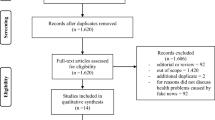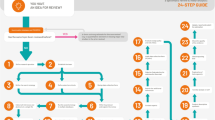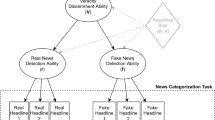Abstract
Dissemination of information on a genetically increased risk should according to guidelines primarily be family-mediated. Incomplete and incorrect information spread has, however, been documented and implies missed possibilities for prevention. In Denmark, the national HNPCC register has been granted an exception to send unsolicited letters with information on hereditary colorectal cancer and an invitation to genetic counseling to members of families with familial and hereditary colorectal cancer. To evaluate this approach, we investigated reactions and attitudes to unsolicited letters in 708 members of families with genetic predisposition and in 1600 individuals from the general population. Support for information letters was expressed by 78% of the family members and by 82% of the general population. Regarding route of information, 90% of family members preferred a letter to no information, 66% preferred information from the hospital rather than from family members and 40% preferred to obtain information from a close family member. Our results suggest that use of unsolicited information letters from the health care system may be a feasible and highly acceptable strategy to disseminate information to families at high risk of colorectal cancer.
Similar content being viewed by others
References
Win AK, Jenkins MA, Dowty JG et al (2017) Prevalence and penetrance of major genes and polygenes for colorectal cancer. Cancer Epidemiol Biomark Prev 26:404–412. https://doi.org/10.1158/1055-9965.EPI-16-0693
Patel SG, Ahnen DJ (2012) Familial colon cancer syndromes: an update of a rapidly evolving field. Curr Gastroenterol Rep 14:428–438. https://doi.org/10.1007/s11894-012-0280-6
Lynch HT, Lanspa S, Shaw T et al (2017) Phenotypic and genotypic heterogeneity of Lynch syndrome: a complex diagnostic challenge. Fam Cancer. https://doi.org/10.1007/s10689-017-0053-3
Vasen HFA, Blanco I, Aktan-Collan K et al (2013) Revised guidelines for the clinical management of Lynch syndrome (HNPCC): recommendations by a group of European experts. Gut 62:812–823. https://doi.org/10.1136/gutjnl-2012-304356
Forrest LE, Delatycki MB, Skene L, Aitken M (2007) Communicating genetic information in families: a review of guidelines and position papers. Eur J Hum Genet 15:612–618. https://doi.org/10.1038/sj.ejhg.5201822
Gaff CL, Clarke AJ, Atkinson P et al (2007) Process and outcome in communication of genetic information within families: a systematic review. Eur J Hum Genet 15:999–1011. https://doi.org/10.1038/sj.ejhg.5201883
Hampel H (2016) Genetic counseling and cascade genetic testing in Lynch syndrome. Fam Cancer 15:423–427. https://doi.org/10.1007/s10689-016-9893-5
Bleiker EM, Esplen MJ, Meiser B et al (2013) 100 years lynch syndrome: what have we learned about psychosocial issues? Fam Cancer 12:325–339
Vos J, Menko F, Jansen AM et al (2011) A whisper-game perspective on the family communication of DNA-test results: a retrospective study on the communication process of BRCA1/2-test results between proband and relatives. Fam Cancer 10:87–96. https://doi.org/10.1007/s10689-010-9385-y
Offit K, Groeger E, Turner S et al (2004) The “duty to warn” a patient’s family members about hereditary disease risks. JAMA 292:1469–1473. https://doi.org/10.1001/jama.292.12.1469
Weaver M (2016) The double helix: applying an ethic of care to the duty to warn genetic relatives of genetic information. Bioethics 30:181–187. https://doi.org/10.1111/bioe.12176
Dheensa S, Fenwick A, Shkedi-Rafid S et al (2016) Health-care professionals’ responsibility to patients’ relatives in genetic medicine: a systematic review and synthesis of empirical research. Genet Med 18:290–301. https://doi.org/10.1038/gim.2015.72
Aktan-Collan K, Haukkala A, Pylvanainen K et al (2007) Direct contact in inviting high-risk members of hereditary colon cancer families to genetic counselling and DNA testing. J Med Genet 44:732–738
Suthers GK, Armstrong J, McCormack J, Trott D (2006) Letting the family know: balancing ethics and effectiveness when notifying relatives about genetic testing for a familial disorder. J Med Genet 43:665–670. https://doi.org/10.1136/jmg.2005.039172
Hadfield SG, Humphries SE (2005) Implementation of cascade testing for the detection of familial hypercholesterolaemia. Curr Opin Lipidol 16:428–433
Nejadtaghi M, Jafari H, Farrokhi E, Samani KG (2017) Familial colorectal cancer type X (FCCTX) and the correlation with various genes: a systematic review. Curr Probl Cancer. https://doi.org/10.1016/j.currproblcancer.2017.10.002
Nilbert M, Wikman FP, Hansen TVO et al (2009) Major contribution from recurrent alterations and MSH6 mutations in the Danish Lynch syndrome population. Fam Cancer 8:75–83. https://doi.org/10.1007/s10689-008-9199-3
Vasen HF, Watson P, Mecklin JP, Lynch HT (1999) New clinical criteria for hereditary nonpolyposis colorectal cancer (HNPCC, Lynch syndrome) proposed by the International Collaborative group on HNPCC. Gastroenterology 116:1453–1456
Zetner DB, Bisgaard ML (2017) Familial colorectal cancer type X. Curr Genom 18:341–359. https://doi.org/10.2174/1389202918666170307161643
Pedersen CB (2011) The Danish civil registration system. Scand J Public Health 39:22–25. https://doi.org/10.1177/1403494810387965
Graneheim UH, Lundman B (2004) Qualitative content analysis in nursing research: concepts, procedures and measures to achieve trustworthiness. Nurse Educ Today 24:105–112. https://doi.org/10.1016/j.nedt.2003.10.001
Chivers Seymour K, Addington-Hall J, Lucassen AM, Foster CL (2010) What facilitates or impedes family communication following genetic testing for cancer risk? A systematic review and meta-synthesis of primary qualitative research. J Genet Couns 19:330–342. https://doi.org/10.1007/s10897-010-9296-y
Vos J, Jansen AM, Menko F et al (2011) Family communication matters: the impact of telling relatives about unclassified variants and uninformative DNA-test results. Genet Med 13:333–341. https://doi.org/10.1097/GIM.0b013e318204cfed
Daly MB (2015) A family-centered model for sharing genetic risk. J Law Med Ethics 43:545–551. https://doi.org/10.1111/jlme.12297
Bradbury AR, Dignam JJ, Ibe CN et al (2007) How often do BRCA mutation carriers tell their young children of the family’s risk for cancer? A study of parental disclosure of BRCA mutations to minors and young adults. J Clin Oncol 25:3705–3711. https://doi.org/10.1200/JCO.2006.09.1900
Petersen HV, Nilbert M, Bernstein I, Carlsson C (2014) Balancing life with an increased risk of cancer: lived experiences in healthy individuals with Lynch syndrome. J Genet Couns 23:778–784
Mendes Á, Paneque M, Sousa L et al (2016) How communication of genetic information within the family is addressed in genetic counselling: a systematic review of research evidence. Eur J Hum Genet 24:315–325. https://doi.org/10.1038/ejhg.2015.174
Kohut K, Manno M, Gallinger S, Esplen MJ (2007) Should healthcare providers have a duty to warn family members of individuals with an HNPCC-causing mutation? A survey of patients from the Ontario Familial Colon Cancer Registry. J Med Genet 44:404–407. https://doi.org/10.1136/jmg.2006.047357
Rothstein MA (2018) Reconsidering the duty to warn genetically at-risk relatives. Genet Med. https://doi.org/10.1038/gim.2017.257
Wolff K, Brun W, Kvale G et al (2010) How to handle genetic information: a comparison of attitudes among patients and the general population. Public Health Genom 13:396–405. https://doi.org/10.1159/000313458
Wolff K, Brun W, Kvale G, Nordin K (2007) Confidentiality versus duty to inform: an empirical study on attitudes towards the handling of genetic information. Am J Med Genet A 143:142–148
Meiser B (2005) Psychological impact of genetic testing for cancer susceptibility: an update of the literature. Psychooncology 14:1060–1074
Seppälä TT, Pylvänäinen K, Mecklin J-P (2017) Uptake of genetic testing by the children of Lynch syndrome variant carriers across three generations. Eur J Hum Genet 25:1237–1245. https://doi.org/10.1038/ejhg.2017.132
Wiseman M, Dancyger C, Michie S (2010) Communicating genetic risk information within families: a review. Fam Cancer 9:691–703. https://doi.org/10.1007/s10689-010-9380-3
Author information
Authors and Affiliations
Corresponding author
Rights and permissions
About this article
Cite this article
Petersen, H.V., Frederiksen, B.L., Lautrup, C.K. et al. Unsolicited information letters to increase awareness of Lynch syndrome and familial colorectal cancer: reactions and attitudes. Familial Cancer 18, 43–51 (2019). https://doi.org/10.1007/s10689-018-0083-5
Published:
Issue Date:
DOI: https://doi.org/10.1007/s10689-018-0083-5




